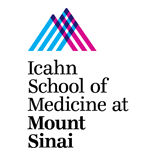预约演示
更新于:2025-05-07
H3K9me3
更新于:2025-05-07
基本信息
别名- |
简介- |
关联
3
项与 H3K9me3 相关的药物靶点 |
作用机制 H3K9me3抑制剂 |
在研适应症 |
非在研适应症- |
最高研发阶段临床前 |
首次获批国家/地区- |
首次获批日期1800-01-20 |
作用机制 EHMT2抑制剂 [+1] |
在研适应症- |
非在研适应症- |
最高研发阶段临床前 |
首次获批国家/地区- |
首次获批日期1800-01-20 |
靶点 |
作用机制 H3K9me3抑制剂 |
在研机构- |
在研适应症- |
非在研适应症 |
最高研发阶段无进展 |
首次获批国家/地区- |
首次获批日期1800-01-20 |
100 项与 H3K9me3 相关的临床结果
登录后查看更多信息
100 项与 H3K9me3 相关的转化医学
登录后查看更多信息
0 项与 H3K9me3 相关的专利(医药)
登录后查看更多信息
2,157
项与 H3K9me3 相关的文献(医药)2025-09-01·Journal of Environmental Sciences
Carbon black induced pulmonary fibrosis through piR-713551/PIWIL4 targeting THBS2 signal pathway
Article
作者: Wang, Jingyuan ; Bao, Lei ; Pang, Yaxian ; Du, Zhe ; Niu, Yong ; Wu, Ruiting ; Wu, Mengqi ; Wang, Mengruo ; Yang, Peihao ; Zhang, Rong ; Shi, Beibei ; Liu, Qingping ; Niu, Yujie ; Chen, Jiawei
2025-07-01·European Journal of Pharmacology
Irisin attenuates liver fibrosis by regulating energy metabolism and HMGB1/β-catenin signaling in hepatic stellate cells
Article
作者: Wang, Xu ; Hou, Minna ; He, Qi ; Li, Jing ; Liu, Yunting ; Hou, Yali ; Li, Ying ; Bai, Ning ; Liu, Xin ; Li, Fang
2025-06-01·Non-coding RNA Research
Long noncoding RNA hottip maintained skeletal homeostasis via suppressing the enhancer of zeste homolog 2 (Ezh2)/histone methylation regulatory axis
Article
作者: Zhou, Shu-Ting ; Liang, Wei-Cheng ; Shi, Chuan-Jian ; Liang, Pu-Ping ; Mai, Yong-Xin ; Shao, Jiang ; Zhang, Jin-Fang ; Li, Zhi-Peng
35
项与 H3K9me3 相关的新闻(医药)2025-04-25
·生物谷
本文研究通过揭示 ZNF638 在脑胶质瘤中的关键作用及病毒模仿术的潜在机制,不仅为免疫疗法在脑胶质瘤治疗中的应用提供了新的思路,还为开发新型治疗策略和生物标志物奠定了坚实的基础。
在医学领域,胶质母细胞瘤(glioblastoma)一直被视为最棘手的癌症之一,这种恶性脑部肿瘤不仅生长迅速、侵袭性强,而且对传统治疗方法和最新的免疫疗法都表现出极强的抵抗力。
近日,一篇发表在国际杂志Journal of Clinical Investigation上题为“Activating antiviral immune responses potentiates immune checkpoint inhibition in glioblastoma models”的研究报告中,来自迈阿密大学米勒医学院等机构的科学家们通过研究发现,通过抑制一种名为 ZNF638 的蛋白质就能触发机体的抗病毒免疫反应,从而增强免疫检查点抑制剂(Immune Checkpoint Inhibitors, ICI)的疗效。这项研究不仅为胶质母细胞瘤的治疗提供了新的策略,还揭示了 ZNF638 作为生物标志物的潜力,有望为患者量身定制免疫疗法。
在癌症治疗的战场上,免疫疗法如同一位英勇的战士,为多种癌症患者带来了前所未有的希望。然而当面对胶质母细胞瘤这一强大的敌人时,免疫疗法却屡屡受挫。脑胶质瘤以其强大的免疫抑制微环境、高度的个体差异以及复杂的手术条件,成为医学界最难攻克的堡垒之一。尽管免疫检查点抑制剂在多种癌症中取得了显著的治疗效果,但在胶质母细胞瘤的治疗中却鲜有成功案例。这种现状让科学家们不禁思考:如何才能让免疫疗法在脑胶质瘤的治疗中发挥应有的作用?近年来,随着对肿瘤免疫微环境的深入研究,一种名为“病毒模仿术”(Viral Mimicry)的策略逐渐浮出水面。病毒模仿术的核心思想是通过激活人体内的抗病毒免疫反应来增强免疫系统对肿瘤细胞的攻击能力,这一策略在卵巢癌、黑色素瘤等多种癌症中已经取得了初步的成功,但在胶质母细胞瘤的治疗中尚未得到有效的应用。文章中,研究人员正是看到了这一潜在的突破点,决心探索病毒模仿术在胶质母细胞瘤治疗中的应用前景。
这项研究中,研究人员将目光聚焦在了一种名为 ZNF638 的蛋白质上,其是一种关键的表观遗传调控因子,能通过招募 HUSH 复合体(一种能够沉默内源性逆转录病毒的蛋白质复合体)在维持基因组稳定性和抑制病毒基因表达方面发挥着重要作用。在正常情况下,HUSH 复合体通过在逆转录病毒 DNA 上添加 H3K9me3 修饰,使其保持沉默状态,从而防止病毒基因的异常表达。然而在胶质母细胞瘤中,这种沉默机制却出现了异常,从而就会导致逆转录病毒基因的重新激活,进而引发了一系列的免疫反应。
为了验证 ZNF638 在胶质母细胞瘤中的作用,研究人员首先对大量的胶质母细胞瘤患者样本进行了基因表达分析,结果发现,与正常脑组织相比,胶质母细胞瘤组织中 ZNF638 的表达水平显著升高,这一结果提示了 ZNF638 可能与胶质母细胞瘤的发生和发展密切相关。进一步的实验结果表明,当研究人员在胶质母细胞瘤细胞中敲低 ZNF638 的表达时,细胞内的 H3K9me3 修饰水平显著下降,而逆转录病毒基因的表达则显著增加;这些逆转录病毒基因的表达产物能够激活细胞内的 dsRNA 传感通路,进而引发抗病毒免疫反应,这一过程正是病毒模仿术的核心机制。
研究人员还发现,ZNF638 的表达水平与胶质母细胞瘤患者的免疫微环境密切相关,在 ZNF638 表达较低的肿瘤中,免疫细胞的浸润水平较高,尤其是 CD8+ T 细胞和自然杀伤(NK)细胞的浸润更为显著;这些免疫细胞的浸润为免疫检查点抑制剂的疗效提供了基础。相反,在 ZNF638 表达较高的肿瘤中,免疫细胞的浸润则受到抑制,导致免疫检查点抑制剂难以发挥作用,这一发现为病毒模仿术在胶质母细胞瘤治疗中的应用提供了重要的理论依据。
全文的图形摘要
研究人员不仅在基础研究层面取得了一定的研究突破,还将这些发现成功地转化到了临床前模型中,他们通过构建小鼠脑胶质瘤模型模拟了人类胶质母细胞瘤的发病过程,并测试了 ZNF638 抑制与免疫检查点抑制剂联合治疗的效果。实验结果表明,与单独使用免疫检查点抑制剂相比,联合治疗能够显著延长小鼠的生存时间,缩小肿瘤体积,并增加肿瘤内免疫细胞的浸润水平,这些结果表明,ZNF638 抑制能够有效地增强免疫检查点抑制剂的疗效,为胶质母细胞瘤的治疗提供了一种新的策略。
更令人兴奋的是,研究人员还发现 ZNF638 的表达水平可以作为一种潜在的生物标志物,用于预测胶质母细胞瘤患者对免疫检查点抑制剂的反应;通过对接受免疫检查点抑制剂治疗的胶质母细胞瘤患者的临床数据进行分析。他们发现, ZNF638 表达较低的患者往往具有更好的治疗反应和更长的生存时间,这一发现为未来的临床治疗提供了重要的指导意义,有望帮助临床医生为患者制定更加个性化的治疗方案。
本文研究通过揭示 ZNF638 在脑胶质瘤中的关键作用及病毒模仿术的潜在机制,不仅为免疫疗法在脑胶质瘤治疗中的应用提供了新的思路,还为开发新型治疗策略和生物标志物奠定了坚实的基础。尽管目前的研究还处于临床前阶段,但这些发现已经引起了广泛关注,并为未来的临床试验和治疗应用带来了无限的可能。
在未来的研究中,科学家们将进一步探索 ZNF638 抑制与免疫检查点抑制剂联合治疗的机制,优化治疗方案并开展大规模的临床试验,从而验证这种新型联合治疗策略在胶质母细胞瘤患者中的安全性和有效性。我们有理由相信,随着研究的不断深入和技术的不断进步,病毒模仿术有望成为人类胶质母细胞瘤治疗领域的一颗璀璨明珠,为无数患者带来生的希望。(生物谷Bioon.com)
参考文献:
Deepa Seetharam,Jay Chandar,Christian K. Ramsoomair, et al. Activating antiviral immune responses potentiates immune checkpoint inhibition in glioblastoma models, Journal of Clinical Investigation (2025). DOI: 10.1172/JCI183745.
免疫疗法
2025-04-19
·精准药物
组蛋白赖氨酸去甲基化酶 (KDM) 被发现已有二十年。近期,这篇Cell 综述总结了 KDM 领域的关键进展。1. 背景介绍在真核细胞中,DNA 缠绕组蛋白形成核小体,并压缩成染色质结构。每个核小体由组蛋白 H2A、H2B、H3 和 H4 的两个拷贝组成,并被 146 个 DNA 碱基对包裹。核小体结构高度动态,能够解开并暴露其周围的 DNA,同时严格调控其通道。此外,组蛋白的翻译后化学改变可以改变 DNA-组蛋白、和组蛋白-组蛋白相互作用,或改变染色质的组织和压缩,从而为组蛋白引入一定程度的可塑性,影响众多DNA 的进程。组蛋白具有多种与转录、复制、基因组稳定性和修复等核过程相关的化学修饰。赖氨酸甲基化就是一种高度保守的翻译后修饰 (PTM),它会影响组蛋白及其尾部。2000 年,在人类和小鼠中发现了第一个保守的组蛋白赖氨酸甲基转移酶 (KMT),该酶可对组蛋白 3 赖氨酸 9 三甲基化 (H3K9me3) 进行修饰,即 SUV39H1 (KMT1A)(图 1)。此后,在过去 25 年中,又发现了许多其他 KMT。图 1 KMT 发现时间表。此前,关于组蛋白甲基化是否可逆存在巨大的争论。20 世纪 70 年代的初步研究表明,组蛋白甲基化是静态的,因为大部分组蛋白和甲基化组蛋白(赖氨酸和精氨酸)的周转率相当。然而,同年的独立研究发现组蛋白甲基化的周转率较低,这表明组蛋白甲基化可能是可逆的。尽管如此,组蛋白甲基化不可逆的观点占据主导地位。施扬院士团队于 2004 年发表的一项开创性发现提供了赖氨酸脱甲基酶 1A (LSD1/KDM1A) 进行酶促去甲基化的直接证据( 图 1,PMID-15620353)。LSD1/KDM1A 含有黄素腺嘌呤二核苷酸依赖性 (FAD) 胺氧化酶结构域,能够对组蛋白 H3K4me1/2 进行去甲基化( 图 2和3)。最终导致了 2006 年发现含有 Jumonji-C 结构域 (JmjC) 的 KDM 超家族( 图 1)。该酶家族利用 Fe(II)、O2和 α-酮戊二酸 (α-KG),与 LSD1 不同,这可以进行三去甲基化( 图 2 )。图2. KDM 家族活性及相关组蛋白赖氨酸底物示意图 图3. KDM 酶结构域2. KDM 酶分类目前已知的 KDM 有两类:(1) FAD 依赖性胺氧化酶,(2)含 JmjC 结构域的酶( 图 2 和图 3 )。2.1FAD 依赖性胺氧化酶:LSD/KDM1LSD1/KDM1A是第一个被鉴定的组蛋白去甲基化酶,属于 FAD 依赖性胺氧化酶超家族( 图 2 )。LSD1 包含 3 个主要结构域:(1) N 端 swi3p/Rsc8p/Moira(SWIRM,小 α 螺旋结构域),对蛋白质-蛋白质相互作用至关重要;(2) C 端胺氧化酶样结构域 (AOD),与 FAD 依赖性氧化酶具有 20% 的序列相似性;以及 (3) Tower 结构域,处于 AOD 之间( 图 3 )。LSD1 特异性催化单甲基化和二甲基化 H3K4 的去甲基化,但不催化三甲基化 H3K4 的去甲基化( 图 2 )。LSD1 在被确认为去甲基化酶之前,曾在多种辅阻遏物复合物中被发现。在 CtBP复合物中鉴定出 LSD1 后,施扬院士实验室首次证明 LSD1 特异性催化单甲基化和二甲基化(但不催化三甲基化)组蛋白 3 赖氨酸 4 (H3K4me1 和 H3K4me2) 的去甲基化( 图 2)。随后,研究强调了辅阻遏物复合物中相关蛋白对 LSD1 活性和功能的重要性( 图 4)。图 4 KDM 相互作用图。LSD2/KDM1B(AOF1)是 FAD 依赖性 AOD 脱甲基酶蛋白家族的第二个成员,与 LSD1 的序列相似性不到 31%。然而,除了催化 AOD 之外,这两种酶都含有负责蛋白质相互作用的 SWIRM 结构域。从结构上讲,KDM1B 和 KDM1A 的 AOD 中含有保守的组氨酸残基,这是其脱甲基酶活性所必需的。区别是 KDM1B 不包含 Tower 结构域,但包含 N 端锌指 (ZF-CW) 结构域。ZF-CW 和 SWIRM 结构域对于 KDM1B 的脱甲基酶活性都至关重要,而 KDM1A 只需要 AOD( 图 3 )。2.2JmjC 酶家族LSD1/KDM1A 的发现的一个重要理解是利用氧化作用生成羰基,从而释放甲醛,从而引起去甲基化( 图 2 )。多个研究小组推测,此类反应可能发生在赖氨酸残基上,而与甲基化程度无关。在发现 KDM1A 后不久,人们发现了一个独立的、进化上保守的酶家族,该家族能够去甲基化甲基化组蛋白( 图 1)。该酶家族含有 JmjC 结构域,负责甲基化赖氨酸的氧化和去甲基化。JmjC 酶不需要像 KDM1A 那样的质子化氮,因此可以去除所有甲基化水平(me1-3)。 JmjC 结构域利用三种关键辅助因子——分子氧、Fe(II) 和 α-KG——对赖氨酸残基的氧化催化去甲基化至关重要。2.3含 JmjC 结构域的酶亚家族JmjC 主要分为两类:仅包含 JmjC 结构域的家族和包含 JmjN-JmjC 结构域的家族。含 JmjC 结构域第一个被发现的 JmjC KDM 是哺乳动物 KDM2 亚家族。KDM2A 和 KDM2B 含有催化 JmjC 结构域、锌指 (ZF-CXXC) DNA 结合结构域、植物同源结构域 (PHD) 指和一个 F 盒结构域,随后是几个富含亮氨酸的重复序列 (LRR)( 图 3)。KDM2 最初被描述为 E3 泛素连接酶,因为它们的结构包含 Skp1 结合 F 盒,随后是 LRR(FBXL),因此它们的别名是 FBXL10 (KDM2B) 和 FBXL11 (KDM2A)。KDM2A 优先去甲基化 H3K36me1/2,而 KDM2B 则去甲基化 H3K36me2,并进一步报道其对 H3K4me34445和 H3K79 残基具有活性。KDM2 ZF-CXXC 结合域可识别并结合未甲基化的 CpG 岛 (CGI),这些 CGI 约占哺乳动物基因启动子的 2/3。KDM2A 特异性结合核小体之间的核小体外连接体 CpG 位点,并含有异染色质蛋白 1 (HP1) 结合基序,该基序通过 HP1 相互作用将 KDM2 家族与 H3K9me3 结合连接起来。在哺乳动物中,KDM3 家族由 3 个成员组成:KDM3A、KDM3B 和 KDM3C,都需要 ZF-CXXC 和 JmjC 结构域进行 H3K9me1/2 去甲基化。这些 H3K9 甲基化状态与基因调控、染色质定位、基因组组织和稳定性相关。另一个含有 JmjC 的亚家族是负责 H3K27me2/3 去甲基化的 KDM6 酶。该家族有三个成员。KDM6A 包含一个 JmjC 结构域和 6 个三十四肽重复 (TPR) 结构域,负责蛋白质-蛋白质相互作用。KDM6A 与其他家族成员的不同之处在于,它的活性更多地依赖于 O2浓度。然而,它与典型的缺氧诱导因子 1α (HIF-1α) 反应无关。与 KDM6A 和 KDM6C 不同,KDM6B含有 JmjC 结构域,但缺少 TPR 结构域。KDM6C 含有 TPR 结构域。KDM6C 最初被认为缺乏去甲基化酶活性;然而,由于 JmjC 结构域的细微序列多样性,观察到了极低的去甲基化酶活性。最新发现的含 JmjC 的亚家族是 KDM7 酶,它也含有 PHD 结构域。在人类中,这组酶包括 KDM7A/KIAA1718、PHF2 和 PHF8。已知这三种酶通过其 PHD 结合 H3K4me3,并且似乎可以去甲基化 H3K9/27me1/2 和 H4K20me1。结构研究揭示了两种相关去甲基化酶 PHF8 和 KIAA1718 选择性去甲基化 K9me 而非 K27me 的机制。该亚家族迄今为止研究最少,需要进一步研究。含有 JmjN-C 结构域KDM4 亚家族是第一个发现的能够对组蛋白上的三甲基赖氨酸进行去甲基化的含有 JmjN 和 JmjC 的去甲基酶。JmjN 结构域对于酶活性至关重要,但其本身没有催化活性。单独的 JmjC 结构域也不具有此类 KDM 的活性,这表明相邻的 JmjN 结构域具有独特作用。该家族成员具有不同程度的去甲基化酶活性,这意味着去甲基化的位点和程度不同。具体而言,KDM4A/C 似乎优先对 H3K9me3/2 和 H3K36me3/2 进行去甲基化,而 KDM4B 对 H3K9me3 的去甲基化最有效,一些报道表明 H3K36me3 去甲基化也发挥了作用。KDM4D 的限制性更强,因为它似乎只能去除 H3K9me3/2。X 射线晶体学研究发现了甲基结合口袋中影响去甲基化位点和程度的特定氨基酸。例如,当使 KDM4A JmjC 氨基酸与 KDM4D 匹配时,KDM4A 和 KDM4D 之间的去甲基化程度相当。除了 KDM4 可以去除 H3K9me3 和 H3K36me3 之外,最近的一项研究发现,KDM4A–C(而不是 D)可以将 H3K14me3 去甲基化为 H3K14me2。KDM4A-C 含有DTD 和两个 PHD 结构域,而 KDM4D 是一种更短的蛋白质,仅含有 JmjN-C 结构域。KDM4A-C 中的 DTD 和 PHD 结构域对于底物识别很重要,但并非酶活性所必需的。然而,这些结构域似乎对于将酶靶向到特定的赖氨酸甲基化状态和基因组位置至关重要。例如,KDM4A DTD 识别 H3K4me3 和 H4K20me2/3 残基,研究表明,DTD 的适度改变会影响 H3K4 与 H4K20 甲基化结合。还有另外两个 KDM4 家族成员 KDM4E 和 KDM4F,它们被认为是假基因。然而,KDM4E 具有酶活性。因此,需要更深入的评估。另一个含有 JmjN-C 的亚家族是 KDM5 酶,其对 H3K4me3/2 去甲基化具有特异性。哺乳动物中有四种不同的 KDM5 成员:KDM5AB/C/D。所有成员都包含相似的结构域,包括 JmjN、JmjC、ARID 和 ZF-C5HC2 结构域,以及两个 (KDM5C/D) 或三个 (KDM5A/B) PHD 结构域。在过去的 20 年中,已发现约 20 种 KDM。然而,必须注意的是,组蛋白中还存在许多其他甲基化的赖氨酸,但尚未发现相关的去甲基化酶。例如,H3K79 甲基化是一种进化上保守的组蛋白修饰。3. 相互作用蛋白和复合物:在基因调控中的作用尽管许多 KDM 在体外作为单一实体具有催化活性,但KDM 会结合辅因子并与蛋白质复合物相互作用,从而进一步影响其活性、靶向性和功能( 图 4 )。增强子的调控增强子是刺激附近或远处基因表达的顺式调控元件。它们具有不同的赖氨酸甲基化状态(即特定的赖氨酸残基和甲基化程度),这些状态与增强子功能的激活或抑制有关,这表明 KDM 在其调控中发挥着重要作用。尽管 H3K4me1 是公认的启动和活性增强子的 H3K4 标记,但H3K4me3 与增强子的过度活跃状态有关,并受 RACK7/KDM5C 复合物的负向调控。此外,通过改善甲基化程度来控制抑制性染色质结构域的程度也可能显著影响增强子功能,并在 KDM 的转录调控中添加一个关键层。H3K4me3 和 H3K27me3 在转录基因调控中具有相互作用。事实上,在混合谱系白血病 (MLL) 中,KDM6A 与 H3K4 甲基化蛋白相关。在胰腺肿瘤中,KDM6A的缺失导致 MLL3/MLL4(KMT2C/D) 结合中断,尤其是在超级增强子处,从而激活MYC和RUNX3等致癌基因。图 5 KDMs 的核和细胞质功能总结。KDM 相互作用蛋白和转录调控LSD1/KDM1A 与多种阻遏物复合物(如 CoREST 和 NuRD)结合( 图 4 和5)。研究表明,LSD1 与转录因子(如 SNAI1、SCRT1、GFI1 和 GFI1B)中 Snail/Gfi-1 (SNAG) 结构域的 N 端序列具有高亲和力结合( 图 4)。SNAG 结构域对组蛋白 H3 尾部的分子模拟促进了与 LSD1 的相互作用,而 CoREST 增强了该复合物与核小体的相互作用。CoREST/LSD1 复合物的另一个成员是 BHC80,它对于维持 LSD1 介导的去甲基化至关重要( 图 4)。与 LSD1 一样,LSD2 也具有可促进功能的相互作用伙伴( 图 4 )。例如,LSD2 与 NPAC(一种细胞因子样核因子,GLYR1 或 NP60)相互作用,NPAC 是一种多结构域蛋白,包含 N 端 Pro-Trp-Trp-Pro (PWWP) 结构域和保守的 C 端脱氢酶结构域( 图 4 )。多项研究表明,LSD2 和 NPAC 都位于标记活跃转录基因体的 H3K36me3 富含区域内,并且它们的相互作用是 LSD2 介导核小体底物去甲基化所必需的。LSD2 主要结合转录活性基因的基因内区域,通过去除基因内 H3K4me1/2 在转录延伸中起关键作用。这些相互作用通常协调复合物的募集和赖氨酸残基的去除,以充分发挥其活性并促进其他残基的正确修饰。然而,有时并不需要酶的去甲基化酶活性来发挥这些作用,例如在 KDM6/SWI/SNF 和 PRC2/JARID2 相互作用中,其功能的重点在于募集能力,而不是酶活性。未来,尤其需要思考如何靶向复合物或其与单个蛋白质之间的相互作用界面,以便在疾病背景下利用 KDM。4. 细胞核和细胞质的作用除了在调控转录方面的“经典作用”外,KDM 还发挥着多种非经典细胞作用。例如,KDM 通过组蛋白和非组蛋白控制影响细胞周期和逆转录 (RT)。此外,许多 KDM 通过转录依赖性和非转录依赖性机制参与 DNA 损伤修复 (DDR)( 图 5 )。该领域的主要焦点是 KDM 在细胞核内发挥作用。然而,越来越多的证据表明 KDM 能够对细胞质内的细胞机制产生重大影响,例如蛋白质翻译和降解(后文讨论)。细胞周期控制:转录依赖性细胞分裂和相关的细胞周期控制受到保守机制的严格调控,包括组蛋白甲基化。例如,早期研究发现 KDM2B 在以去甲基化酶依赖性方式抑制细胞周期进程中起着关键作用。研究表明,KDM2B 会负向调节转录因子 c-Jun 的表达。KDM2B 的敲除会导致异常的细胞周期进程,这与 c-Jun 依赖性转录增强有关。相关研究表明,KDM2B 抑制核糖体 RNA (rRNA) 基因的转录,而这取决于 KDM2B 的催化活性( 图 5)。在分化过程中,KDM5A 与 Rb 相关转录因子 E2F4 协同抑制这些靶标,共同作用减缓细胞周期进程。进一步研究发现,LSD1 的敲除会增加 LSD1-E2F1 靶基因处的 H3K9me2,从而抑制其转录并引发 G1/S 停滞。虽然基因座处的 H3K4me2 没有变化,但 H3K4me2 读取器 PHF8 的共同消耗挽救了这些效应。细胞周期控制:独立于转录虽然 KDMs 领域主要关注的是其转录影响,但它们在细胞周期中也发挥着多种独立于转录调控的作用。例如,LSD1 过表达会增加 Rb 的磷酸化,进而增加 E2F 的转录活性,促进细胞周期进程。LSD1 还通过其 Lys442 残基的去甲基化,促进 RB 调节剂肌球蛋白磷酸酶靶亚基 1 (MYPT1)的不稳定,从而增加 MYPT1 的周转率。因此,KDM1A 可以在基因水平或直接蛋白质调控水平上影响 Rb-E2F 基因网络。总的来说,在整个基因组中调节适当的组蛋白修饰及其甲基化程度以维持适当的 DNA 复制的重要性。DDR:转录依赖性KDM 还可以通过直接转录调控影响 DDR(DNA 损伤修复,DNA damage repair)。例如,最近的一项研究表明,H3K27me3 去甲基酶 KDM6A/B 直接调节 DDR 相关基因的表达。KDM6 酶受基因毒性应激调控,而 KDM6 缺乏则通过功能丧失的癌症相关突变来损害 DNA 双链断裂 (DSB) 修复。H3K9 甲基化也可以抑制 DDR 基因的表达,KDM3A 通过去除 H3K9me2/1 并募集转录因子 c-Myc 来激活 DDR 基因的表达。H3K9 去甲基酶 PHF2 也是 DSB 修复的调节器,因为 PHF2 催化活性的消耗或抑制会抑制BRCA1和CtIP这两个对 DDR 至关重要的基因的表达( 图 5)。DDR:独立于转录DDR 涉及由外部或内部应激源引起的 DNA 损伤的检测、信号传导和修复,并且在整个细胞周期中受到 KDM 的高度调控( 图 5 )。 例如,清除 H3K4 甲基化对于正确的 DNA 修复至关重要,例如非同源末端连接 (NHEJ)。此外,H3K4 去甲基化酶 KDM1A/LSD1 被募集到 DSB 位点,从而募集 DDR 蛋白 53BP1。敲除 LSD1 会抑制 53BP1 和 BRCA1 复合物的形成。KDM5A/B 去除 H3K4me3 对于正确的 DSB 修复至关重要。KDM5A/B 会在 DNA 损伤位点聚集并去甲基化 H3K4me3 标记。这种去甲基化是募集染色质重塑蛋白 ZMYND8 和 NuRD 复合物以及 DDR 蛋白 Ku70 和 BRCA1 所必需的,以促进有效的 DNA 修复。虽然 KDM4A 会抑制 DDR,但其他去甲基化酶的存在对于充分的 NHEJ 和同源性定向修复 (HDR) 是必需的。例如,KDM3C/JMJD1C 被募集到 DSB,并且是下游 BRCA1 募集所必需的。H3K9me3 去甲基化酶 KDM4D 也是 DSB 修复所必需的,它被聚(ADP-核糖)聚合酶 1 (PARP1) 进行聚 ADP 核糖基化(PARylated)。KDM4D 的 PARylation 使其能够募集到 DSB 位点,通过增加 ATM 与染色质的结合促进 DNA 损伤早期标志物的磷酸化。KDM4A/D 的矛盾作用及其在 DDR 中的作用可能是由于它们的表达模式、蛋白质结构、酶底物及其相关蛋白质复合物的巨大差异造成的。剪接调控RNA 剪接是转录过程中剪接体从前 mRNA 中移除内含子并将外显子剪接回去的过程。虽然 RNA 剪接和组蛋白甲基化控制看似无关,但有证据表明组蛋白修饰酶可能在调节选择性剪接中发挥关键作用。例如,H3K36me3 在外显子上高度富集,而在内含子中则被耗尽,充当剪接位点之间的边界标记。其他组蛋白标记也在外显子和/或内含子中富集。H3K9me3 可被异染色质蛋白 HP1γ 识别和结合,它促进全基因组范围内许多基因中选择性外显子的插入。细胞质蛋白调控人们对细胞核内 KDM 的功能进行了全面的研究。然而,在细胞质中也观察到了许多 KDM。例如,KDM4 家族在蛋白质合成中起着关键作用,其细胞质丰度与癌症预后不良相关( 图 5)。KDM4A 直接与翻译机制相互作用,并以催化依赖性和非催化性的方式影响翻译起始因子在多核糖体部分中的分布,这表明需要活性和蛋白质本身。此外,KDM4A 的消耗会导致蛋白质合成减少( 图 5)。另一项观察表明,抑制或敲除 KDM4A 可使细胞对雷帕霉素靶标 (mTOR) 抑制剂敏感,这是一种抑制翻译起始和蛋白质合成的重要治疗策略。在 KDM5A 中也观察到了类似的效果。KDM4A 还通过与 RNA Pol I 和 H3K9 去甲基化的相互作用来促进核糖体 DNA (rDNA) 的转录,表明 KDM4A 在调节蛋白质翻译方面具有细胞核和细胞质作用( 图 5 )。LSD1 通常位于细胞核中,但在药物干预后可被隔离在细胞质中。LSD1 为何或如何被隔离在那里,以及它在药物干预后在细胞质中发挥的作用大多尚不清楚。5. 代谢和 KDM代谢:对 KDM 的影响KDM 辅因子是已知代谢物;因此,两类 KDM 的活性都会受到代谢改变的影响( 图 6 )。LSD1 的活性通常与 FAD 代谢物的细胞可用性紧密相关。例如,LSD1 严格调控脂肪细胞中与能量消耗相关的基因转录。在没有 FAD 的情况下,由于 LSD1 活性受到抑制,低能量可用性基因标记被激活,从而导致参与降低能量消耗的基因激活。相反,研究也表明,FAD 的细胞内浓度增加会增强 LSD1 活性,从而导致下游转录效应。使用 FAD 的前体核黄素(维生素 B2)治疗足以增加 FAD 水平并激活 LSD1,导致靶基因的 H3K4me2 水平降低。在另一项研究中,发现叶酸与 LSD1 相关并增强其活性。这项观察结果表明其他辅助因子也可能在 KDM 中发挥作用,但该领域需要在机制上以及在发育和疾病的背景下进行进一步评估。图 6 KDM 受代谢影响与含有 FAD 的 KDM 相反,JmjC 脱甲基酶是铁 (Fe(II)) 和 2-氧代戊二酸/α-KG 依赖性的双加氧酶( 图 6 )。JmjC 酶的活性会因代谢中断而改变,例如代谢副产物琥珀酸和富马酸的积累。由于琥珀酸和富马酸与 α-KG 的序列和结构高度相似,它们竞争性地与 α-KG 结合位点结合,从而抑制 JmjC 酶的活性。琥珀酸和富马酸分别是琥珀酸脱氢酶 (SDH) 和富马酸水合酶 (FH) 的底物。这些酶的突变在癌症中很常见,并导致琥珀酸和富马酸的积累,导致 α-KG 依赖性加氧酶(包括含 JmjC 的 KDM)的整体抑制。异柠檬酸脱氢酶 (IDH) 是三羧酸 (TCA) 循环中的关键酶,可催化异柠檬酸氧化脱羧为 α-KG。在癌症中经常发现 IDH 基因的激活新形态突变,突变的 IDH 会将 α-KG 转化为 2-HG( 图 6 )。 由于其与 α-KG 的结构相似性,2-HG 可以通过在活性位点占据与 α-KG 相同的结合口袋,充当含 JmjC 酶的竞争性抑制剂。 这会导致染色质修饰和肿瘤转化的全基因组变化,并损害肿瘤分化。 2-HG 对 KDM 的影响并不具有普遍性,但似乎具有优先影响顺序,这意味着普遍抑制可能不是这种致癌代谢物的结果。未来的研究需要更深入地探讨这些关系。除了代谢辅因子外,金属也会影响 JmjC 酶。缺氧已被证实会抑制某些 KDM 的活性,而其他 KDM 则保持稳定,并且某些 KDM 的转录表达更高( 图 6 )。低氧曾被认为会阻碍 Fe(II) 状态并抑制酶;然而,它们似乎有不同的方式应对缺氧的影响。最近的一项研究进一步表明,JmjC 酶是细胞内铁的关键传感器。长期缺铁 (ID) 导致全基因组组蛋白甲基化水平升高,包括 H3K9、H3K27、H3K4 和 H3K36,这与雷帕霉素复合物 1 (mTORC1) 活性的抑制同时发生。具体来说,H3K9me2 在所有标记中的丰度增幅最大,特别是在增强子区域,而强制过表达 KDM3B 足以挽救 mTORC1 活性。这些研究共同表明,染色质修饰会根据多种代谢副产物和辅因子进行敏感且动态的调控,这表明它们在人类生物学和代谢疾病中至关重要。6. 发育与 KDM自发现以来,KDM 已被证明与哺乳动物的多种发育作用有关。早期发育:含义和功能KDM1A/LSD1 在早期发育过程中起着至关重要的作用,因为 Lsd1−/−小鼠在原肠胚形成之前就会死亡。Lsd1−/−小鼠 ESC (mESC) 产生的小鼠具有严重的生长缺陷,并且分化不良会导致细胞死亡。LSD1 是 mESC 分化所必需的,因为 LSD1 会抑制参与干细胞维持的增强子( 图 7A)。然而,据报道,LSD1 通过沉默双价标记(silencing bivalently marked ,甲基化)的发育基因对人类 ESC (hESC) 的维持至关重要( 图 7B)。在这种情况下,LSD1 敲除可导致分化增强,内胚层和中胚层谱系标记物的表达增加。虽然观察到的差异可能是由于使用 mESC 和 hESC 造成的,但这强调了在研究发育调控时需要使用最优的模型系统( 图 7 A 和 7B)。图 7 KDM 与早期发育体细胞可被哺乳动物卵母细胞重编程为全能状态,从而可通过体细胞核移植 (SCNT) 进行克隆。然而,很大比例的克隆胚胎在早期发育阶段停滞。供体细胞基因组中的 H3K9 甲基化是 SCNT 的主要障碍,导致发育失败。强大的 H3K9 去甲基化酶 KDM4D 的诱导可恢复 SCNT 中的转录重编程,从而改善胚胎发育和克隆( 图 7C)。SCNT 期间 KDM4D 的诱导增加有助于更高级的结构重组,从而改善重编程,与 KDM6B 观察到的机制类似。H3K9me3 会阻碍 SCNT 后的胚胎发育,而 KDM4A 过表达可改善 SCNT。此外,KDM4A 可去甲基化 H3K9me3 区域,并维持卵母细胞中对正常植入前发育和受精后合子基因组激活 (ZGA) 至关重要的基因上的 H3K4me3( 图 7D)。因此,KDM4 酶可通过调节分化过程中的基因表达并整体抑制 H3K9me3 水平,有助于改善克隆胚胎的发育以及抑制性突触后电流 (iPSC) 的产生。Polycomb 相关发育程序KDM2B 对于将 PRC1.1 复合物募集到 mESC 和 hESC 中早期谱系特异性基因的 CGI 至关重要( 图 7 E)。mESC 中的 KDM2B 敲除通过表达这些早期谱系特异性基因诱导早期分化,这与 PRC1 水平无关。这一观察结果在乳腺癌干细胞模型中得到了重现,因为KDM2B−/−肿瘤细胞会发生分化。缺乏 KDM2B ZF-CXXC 结构域(PRC1.1 靶向 DNA 所必需的)的小鼠在胚胎期致死,这表明 KDM2B 非催化活性在早期发育中的重要性( 图 3和7E)。PRC1.1/KDM2B 复合物还通过抑制造血发育相关基因的转录在造血系统发育中发挥类似作用。这些研究强调了 KDM2B 与 Polycomb 复合物的偶联,以及它如何通过将 Polycomb 蛋白靶向 CGI 并抑制发育调控基因,在维持 ESC 的多能状态方面发挥关键的脱甲基酶独立作用。与它们在发育中的作用一致,KDM2 酶的过表达增强了 Yamanaka 因子产生的 iPSC。除了 KDM2 和 JARID2 之外,KDM5B 也是 Polycomb 相关发育的重要调节因子。早期研究表明,KDM5B 与 mESC 中的 Polycomb 靶基因相关。PRC2 募集 KDM5B 到发育基因上,以去除活性 H3K4me3 标记,同时放置抑制性 H3K27me3 标记,从而在 mESC 分化过程中协调有效的转录抑制。PRC2 和 KDM5B 之间的这种协调相互作用对于 mESC 神经分化至关重要( 图 7 F)。 7. 疾病与关键代谢调控 (KDM):从遗传学到治疗学自发现以来,KDM 与多种疾病之间存在着诸多联系,人们付出了巨大的努力来挖掘其作为治疗靶点的潜力。事实上,目前已知的每一种 KDM 都与癌症或其他疾病有关( 图 8 )。本文重点关注受 KDM 失调影响的两个主要疾病领域的相关发现:神经系统相关病变和癌症。图 8 KDM 与癌症和神经系统疾病神经发育病理学KDM 中的各种基因改变与神经系统疾病有关。例如,患有 X 连锁智力障碍 (XLID) 的患者携带KDM5C/SMCX突变,这会降低或完全消除酶活性( 图 8)。斑马鱼模型证明 KDM5C 在整个发育过程中都具有活性,KDM5C 主要作用于神经元特异性基因,以维持其在干细胞和非神经细胞中的沉默。与 KDM5C 一样,KDM5B 也与神经调节和疾病有关( 图 8 )。KDM5B 在发育迟缓和智力障碍的个体中失调。在患有自闭症和其他疾病(包括智力障碍)的患者中也发现了几种 KDM5B 的剪接变体。与 KDM5B/C 不同,KDM5A 的神经元特异性功能很少受到关注。与 KDM5 家族一样,KDM6A/UTX 也在神经发育过程中发挥着各种各样的作用( 图 8 )。衰老与 ADKDM 在细胞衰老和衰老相关疾病(例如阿尔茨海默病 (AD))中的作用一直是研究的热点。例如,早期研究表明,秀丽隐杆线虫 ( C. elegans)的衰老过程中 H3K27me3 水平会降低。当utx-1(KDM6A 同源物)被敲除时,这些水平会恢复,寿命也会延长。敲除T26A5.5(KDM2B 同源物)和lsd-1(LSD1 同源物)也观察到了类似的寿命延长,而敲除rbr-2(KDM5A 同源物)则会缩短寿命。LSD1 是神经元正常发育和维持所必需的,LSD1 的减少或缺失会导致小鼠严重的认知障碍。然而,与基因耗竭相反,药物抑制 LSD1 会产生完全不同的结果,改善 AD 相关症状并提供一种极有前景的 AD 治疗方法( 图 8 )。究人员证明,ORY-2001(商品名 Vafidemstat)是一种强效且口服生物利用度高的化合物,可缓解小鼠的认知障碍并减少神经炎症。因此,Vafidemstat 是迄今为止唯一一种正在接受 AD 临床评估 (NCT03867253) 的 LSD1 抑制剂,其他神经系统疾病的治疗也在研发中。癌症细胞的表观遗传重编程如今被认为是癌症的一个标志。组蛋白异常去甲基化已被证明与多种癌症的发病机制有关。LSD1 贡献和试验LSD1 已成为 AML 中的可行靶点,因为它经常过表达( 图 8 )。LSD1 抑制和/或下调可在体外诱导 AML 细胞分化并减轻肿瘤负担。早期临床试验数据表明,LSD1 抑制剂 ORY-1001 可诱导MLL易位 AML 患者的形态母细胞分化和分化综合征。LSD1 抑制剂通过破坏 LSD1/CoREST 复合物与染色质上的转录抑制因子 GFI1 的物理关联来促进MLL易位 AML 细胞的分化。这种关联对于 GFI1 的抑制活性至关重要,而 GFI1 会促进白血病形成。LSD1 抑制会使 GFI1 失活,从而促进增强子组蛋白乙酰化并与白血病细胞分化相关。LSD1 抑制剂tranylcypromine 使 AML 细胞对全反式维甲酸 (ATRA) 敏感,并且可能恢复了部分骨髓增生异常 (MDS) 和 AML 患者对 ATRA 的反应性。另一种 LSD1 抑制剂 Bomedemstat 已获得美国食品药品监督管理局 (FDA) 授予的用于治疗原发性血小板减少症 (ET) 和骨髓纤维化 (MF) 的孤儿药及快速通道资格认定,以及用于治疗急性髓系白血病 (AML) 的孤儿药资格认定。Bomedemstat 目前正在进行单独治疗以及与骨髓增生性肿瘤(例如 ET、MF 和真性红细胞增多症 (PV))的联合治疗评估。由于 LSD1/KDM1A 经常过表达,因此它在实体恶性肿瘤中也至关重要( 图 8 )。尤文氏肉瘤 (EWS) 是一种高度依赖融合癌蛋白 EWS/ETS 驱动的异常转录的肿瘤类型。LSD1 与 EWS/ETS 相互作用,作为肿瘤抑制基因的关键转录阻遏物,因此代表了 EWS 中一个有希望的治疗靶点。后续研究评估了可逆、非竞争性 LSD1 抑制剂 HCI2509 (SP-2509) 在 ES 细胞和异种移植模型中的疗效。SP-2509 显著逆转了由 EWS/ETS 驱动的改变的转录谱,导致细胞凋亡的诱导,破坏了肿瘤发生,并在多种 EWS 异种移植模型中显示出令人印象深刻的疗效。这类研究促成了 LSD1 抑制剂治疗实体瘤(如 EWS 和神经内分泌肿瘤)的临床试验。在 NCT03895684 中,LSD1 抑制剂 seclidemstat 在晚期肉瘤患者中表现出活性,且安全性可控。然而,在 NCT02034123 中,强效选择性 LSD1 抑制剂 GSK2879552 对小细胞肺癌患者的疾病控制效果不佳,并导致毒性率高,导致研究终止。弥漫性内在性脑桥神经胶质瘤 (DIPG) 是无法治愈的儿童高级别神经胶质瘤,其特征是 H3 组蛋白尾部突变 (H3.1/3.3-K27M)。CRISPR 筛选发现,敲除 LSD1 可使 DIPG 细胞对 HDAC 抑制剂敏感。使用 HDAC 和 LSD1 的双功能抑制剂可有效抑制异种移植模型中的 DIPG 生长。将 KDM 抑制剂与免疫检查点阻断相结合已成为一种有效的治疗选择,并且根据最近的研究,可能是产生最大临床影响的途径。LSD1 抑制产生的 dsRNA 应激可产生强大的抗肿瘤 T 细胞免疫,使难治性肿瘤对抗 PD1 疗法产生反应( 图 8)。利用 LSD1/KDM1A 抑制剂和免疫检查点的临床试验正在进行中(例如,NCT05597306 和 NCT06357182)。JmjC 贡献和试验KDM2A 高表达与增殖增加相关,且在多种癌症中均有观察到,包括胃癌、肺癌、乳腺癌、结直肠癌等( 图 8 )。最近的 CRISPR 筛选发现,KDM2A 对依赖替代延长端粒 (ALT) 机制维持永生的肿瘤具有选择性必需性,占所有人类癌症的 10%。KDM2A 的 H3K36 去甲基化酶活性对 ALT 依赖性肿瘤维持至关重要。与 KDM2A 类似,KDM2B 也通过抑制 rRNA 基因表现出抗增殖作用。研究表明,KDM2B 是一种肿瘤抑制因子,因为它在胶质母细胞瘤中下调,缺乏Kdm2bZF-CXXC 结构域的小鼠以 NOTCH1 通路依赖性方式患上致死性急性淋巴细胞白血病 (ALL)( 图 3和8)。 KDM2B 通过其 LRR 与 SWI/SNF 染色质重塑复合物 Brg1的核心亚基结合,以去甲基化酶非依赖的方式促进 IL-6 启动子对染色质的可及性( 图 4)。除了细胞因子信号转导外,KDM2 家族还参与调节与癌症相关的 Wnt/β-catenin 通路。KDM2 家族成员通过核 β-catenin 去甲基化来抑制 Wnt/β-catenin 通路,从而导致其降解。KDM3A 的致癌作用在结直肠癌 (CRC) 的背景下得到最多研究,在结直肠癌中,KDM3A 在 mRNA 和蛋白质水平上均高表达,并与生存率降低和转移率降低相关( 图 8 )。在 CRC 异种移植模型中敲低 KDM3A 会导致生长、侵袭和转移受到抑制。一种可能的机制是 KDM3A 与癌蛋白 β-catenin 之间的相互作用,KDM3A 可激活 β-catenin 靶基因,包括MYC。KDM4 酶在各种癌症中过度表达和扩增,并在驱动肿瘤生长中发挥多种作用( 图 8 )。迄今为止,KDM4 抑制剂 TACH101 是唯一在癌症临床试验中进行测试的 JmjC 脱甲基酶抑制剂。TACH101 由 Tachyon Therapeutics 开发,是一种强效的 KDM4A-D 选择性抑制剂( 图 1)。目前正处于 I 期试验(NCT05076552)阶段,TACH101 在阻断多种肿瘤类型的动物异种移植模型中增殖和减少肿瘤生长方面表现出色,最高可达 100%。KDM4 酶还控制先天免疫反应。 KDM4 抑制剂 QC6352 可导致复制应激诱导的胞浆 DNA 积累,并激活 GMP-AMP 合酶 (cGAS)-干扰素基因刺激因子 (STING) 通路。QC6352 与PD1 阻断剂联合使用可激活抗肿瘤免疫,增强鳞状细胞癌 (SCC) 中肿瘤对抗 PD1 的应答。KDM5 酶会促进细胞转录组异质性。KDM5A 在多种癌症中一小部分耐药细胞中高表达,从而导致染色质状态改变。在黑色素瘤中,一小部分对肿瘤持续生长和增殖至关重要的细胞含有高表达的 KDM5B(KDM5B HI )并显示出较慢的循环速率( 图 8)。KDM5B hi细胞表现出显著的自我更新能力,而体内敲低 KDM5B 可阻止转移进展。KDM5 家族是唯一已知的能够去除 H3K4me3 的酶,它们还与促进癌症的染色体不稳定性及耐药性密切相关。首个基于 JmjC 去甲基化酶的临床试验于 2016 年启动,研究 KDM5 抑制剂 GS-5801 对慢性乙型肝炎的疗效。虽然 KDM5 疗法在慢性乙型肝炎中的应用尚未成功。KDM6 家族在调节转录中的作用会影响细胞周期、增殖和凋亡,这使得该家族成为各种疾病的潜在治疗靶点。KDM6A 在各种癌症中都被认为是致癌基因和肿瘤抑制因子,在某些情况下,例如乳腺癌和肝癌,KDM6A 的功能与双重作用相关( 图 8)。例如, 体外 KDM6A 下调或缺失与结直肠癌和胰腺癌中的肿瘤抑制功能有关。在 AML 中,KDM6A/B 的缺失会损害 AML 细胞的 DDR 通路,使其对 PARP 抑制剂疗法敏感。相比之下,KDM6B 在多种肿瘤类型中经常上调,例如 AML、宫颈癌和前列腺癌( 图 8)。KDM7 酶家族的致癌作用很大程度上是由于 KDM7B/PHF8 在多种癌症类型中的过表达( 图 8 )。KDM7A/KDM7C 也被认为是黑色素瘤、结直肠癌和肝癌3等实体瘤的抑癌基因。KDM7C 的下调在 CRC 中具有保护作用,而 KDM7A 的过表达在黑色素瘤中具有保护作用。8. 未来展望自 20 年前首次发现 KDM1A/LSD1 以来,在组蛋白去甲基化(KDM)这一新兴领域中,相继的发现彻底改变了我们对疾病的理解,并为治疗干预提供了新的途径。尽管最初的发现发表于 2004 年 12 月,但 LSD1、KDM4 和 KDM5 仍然是目前临床试验中仅有的 KDM 靶点。这可能是因为去甲基化酶抑制剂难以转化为临床应用,因为酶结构域在家族内和家族间固有的结构相似性,以及缺乏合适的癌症分层工具。虽然人们正在努力开发酶特异性抑制剂,但本文总结的结果表明,靶向酶结构域可能并非解决问题的唯一方法。这些研究共同表明,靶向 KDM 中影响与其复合物结合或读取/对接基因组能力的关键结构域,以产生最佳治疗效果可能更容易,也可能更有效。参考文献:10.1016/j.cell.2025.02.023 声明:发表/转载本文仅仅是出于传播信息的需要,并不意味着代表本公众号观点或证实其内容的真实性。据此内容作出的任何判断,后果自负。若有侵权,告知必删!长按关注本公众号 粉丝群/投稿/授权/广告等请联系公众号助手 觉得本文好看,请点这里↓
细胞疗法
2025-04-17
·奇点网
*仅供医学专业人士阅读参考通常情况下,人类基因组中的转座子和其他重复元件会受表观遗传调控,保持转录沉默状态。但在某些情况下,这些重复元件会被激活,并生成免疫原性核酸(重复的RNA和DNA片段,类似病毒感染时的表现),从而触发类似病毒感染的免疫反应,即病毒模拟反应。近年来新兴的一些表观遗传疗法就是利用病毒模拟反应,来刺激免疫系统清除癌细胞。但奇怪的是,如果病毒模拟反应可以杀死癌细胞,那为什么几乎所有人类癌症还都表现出了重复元件的异常激活呢?换句话说,癌细胞又是怎么在病毒模拟反应存在的情况下存活的呢?近期,针对这个疑问,多伦多大学健康网络玛格丽特公主癌症中心Daniel D. De Carvalho团队发表了一项重要研究进展。他们发现,p53蛋白缺失是癌细胞能在病毒模拟反应存在的情况下存活的关键。具体来说,通过对浆液性输卵管上皮内癌(STICs)以及同种异体卵巢癌模型进行分析后,研究人员发现,p53的缺失会导致免疫原性重复元素的激活,从而产生免疫原性核酸,并引发了慢性病毒模拟反应。与急性病毒模拟反应不同,长期慢性的暴露在病毒模拟反应下,反而会让癌细胞对免疫反应产生耐受性(即病毒模拟耐受现象,表现为IFN信号通路的下调,抗肿瘤免疫反应减弱),最终引发免疫逃逸。而使用逆转录酶抑制剂拉米夫定,则可以减少细胞中RNA-DNA杂合体的积累,进而在一定程度上减轻病毒模拟耐受现象,并恢复免疫系统对癌细胞的攻击。研究发表在Cancer Discovery上[1]。论文首页截图既往有研究显示,癌症发生与重复元件的异常激活有关,其中抑癌蛋白的功能失活在这一过程中发挥了重要作用。鉴于人类癌症中最常发生突变的抑癌蛋白是p53,且几乎所有卵巢高级别浆液性癌(HGSCs)的发生都始于输卵管分泌上皮细胞的TP53突变。因此,研究人员打算对HGSCs的癌前病变,即浆液性输卵管上皮内癌(STICs)以及同种异体卵巢癌模型进行分析,以揭示p53功能丧失如何影响重复元件的表达以及癌细胞如何逃脱由此引发的免疫反应。研究先是利用激光捕获显微切割(LCM)技术分离出STICs患者的肿瘤组织和邻近正常输卵管组织,并对这些样本进行了RNA-seq和免疫组化分析。结果显示,与正常组织相比,STICs组织中除了有明显的TP53突变(p53缺失)以外,确实还存在重复元件(尤其是逆转录转座子,LTR、LINE和SINE)的表达显著上调的现象。p53缺失促进了重复元件的激活但奇怪的是,基因集富集分析显示,重复元件表达上调并没有显著诱导I型干扰素(IFN)反应,这说明,p53功能丧失,确实促进了重复元件的激活,但没有引发强烈的病毒模拟反应(这一现象也在卵巢癌细胞和小鼠模型中得到了验证)。接下来,利用核酸酶靶向切割和释放 (CUT&RUN) 技术,研究人员分析了p53在卵巢癌上皮细胞(ID8细胞)中染色质的结合情况。结果发现,p53不仅可以结合在DNA损伤反应相关基因的启动子区域,还广泛存在于重复元件丰富的区域,且在p53缺失后,这些重复元件区域H3K9me3水平出现了显著下降,从而导致了重复元素的激活。p53缺失降低了重复元件区域H3K9me3的水平进一步的免疫荧光和RNA测序结果显示,p53缺失后,重复元件激活会导致细胞质中一些重复DNA或RNA片段(如RNA-DNA杂合体和dsRNA水平升高)积累,这些片段在激活细胞质中的RNA和DNA传感器后,确实引发了病毒模拟反应,但和之前发现一样,并未引起明显的IFN反应。为了评估导致这一现象的原因,研究人员通过实验模拟持续的dsRNA暴露后发现,长期慢性的暴露于dsRNA引发的病毒模仿反应下,反而会让癌细胞会对免疫反应产生耐受性(即持续性的刺激会选择出那些对dsRNA等免疫原性核酸耐受性高的癌细胞,这些癌细胞对病毒模拟反应不再敏感,这一现象也叫病毒模拟耐受,具体表现为IFN信号通路的下调,抗肿瘤免疫反应减弱),最终引发免疫逃逸。这点同样也在小鼠模型中得到了验证(即将Tp53缺失的ID8细胞注射到小鼠腹腔后,肿瘤生长更快,小鼠生存率更低,且肿瘤浸润CD8阳性T细胞数量明显减少)。细胞暴露实验和病毒模拟耐受现象最后,研究人员发现,使用逆转录酶抑制剂拉米夫定,可以在早期减少细胞中RNA-DNA杂合片段的积累,进而在一定程度上减轻病毒模拟耐受现象,恢复免疫系统对癌细胞的攻击。总之,该研究揭示了p53缺失通过触发慢性病毒模仿反应,导致癌细胞免疫逃逸的机制,并指出在癌症发展的早期阶段使用逆转录酶抑制剂可能会作为一种有效的预防策略。这些发现不仅为理解癌症发生的早期事件提供了新视角,也为开发癌症早期治疗提供了新策略。参考文献:[1]Ishak CA, Marhon SA, Tchrakian N, et al. Chronic Viral Mimicry Induction following p53 Loss Promotes Immune Evasion. Cancer Discov. 2025;15(4):793-817. doi:10.1158/2159-8290.CD-24-0094本文作者丨张金旭
核酸药物
分析
对领域进行一次全面的分析。
登录
或

生物医药百科问答
全新生物医药AI Agent 覆盖科研全链路,让突破性发现快人一步
立即开始免费试用!
智慧芽新药情报库是智慧芽专为生命科学人士构建的基于AI的创新药情报平台,助您全方位提升您的研发与决策效率。
立即开始数据试用!
智慧芽新药库数据也通过智慧芽数据服务平台,以API或者数据包形式对外开放,助您更加充分利用智慧芽新药情报信息。
生物序列数据库
生物药研发创新
免费使用
化学结构数据库
小分子化药研发创新
免费使用


